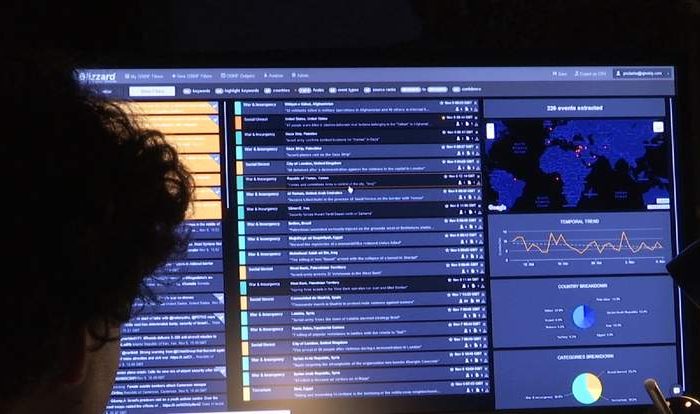


A TEENAGE hacker has told Sky News that targeting company websites for profit is becoming more popular as easy-to-use hacking tools are readily available online.
The 17-year-old, who is currently on police bail for separate hacking offences, said he got into hacking through online gaming.
He said: “It all started when I was 15 and playing online computer games.
“I met someone when I was playing Xbox and he wanted to win so started hitting other players offline and telling them information about themselves that he couldn’t have known.
“It was quite weird to see and when you’re young it’s quite intriguing.”
Normally hackers have to prove their skills by defacing websites illegally but Jack (not his real name) was taken into a small group without having to do an initiation.
He started penetrating website security systems to make money legally through “Bug Bounties” where companies pay ethical hackers money for showing them holes in security.
However, he turned to stealing data or ransoming companies after being denied payment from firms who failed to honour agreements.
“You can earn a lot of money through bug bounties but once you get screwed over by companies who don’t pay out or just take the information and ignore you, that’s when you think: ‘That isn’t fair, I need some compensation for the work I’ve done here’.
“So you access the data to get something back.”
Jack’s story is a common one, with teenage hacking becoming a serious problem for police.
In the last 12 months some of the biggest cyber attacks have been linked to teenagers. Xbox, Playstation, NASA, Comcast, NCA and AOL are all thought to have been targeted by under 18s.
Most recently, two 16-year-olds and a 15-year-old were arrested in connection with the TalkTalk attack in October.
Richard Jones from the National Crime Agency’s cybercrime prevention team says it is a challenge to deter teens away from the lure of making money and getting fame online.
He agrees that easy-to-buy and easy-to-use hacking tools could be behind a rise in teen cybercrime.
“We have seen, in the last couple of years, a rise in these off-the-shelf type tools that anyone can purchase no matter what their skill level is,” he said.
“You’ve got tools like Stresser tools which you can target at a website and stop that website working but also Remote Access Trojans as well that enable individuals to steal personal data or control webcams.”
Earlier this week, in the wake of the Paris terror attacks, Chancellor George Osborne announced plans to boost the UK’s cyber defences with an extra £1.9bn over the next five years.
He also vowed to create a new National Cyber Centre to bring together the country’s leading experts.
However, industry leaders say there is a skills gap and are trying to encourage talented teens away from criminality online.
The final of the Cyber Security Challenge is taking place today in Westminster.
The competition sees 42 of the brightest young hackers take on the role of cyber defenders to stop a simulated terror plot.
Challenge chairman Dr Robert L. Nowill says it’s an important initiative.
“There is a skills gap at the moment but this event gives (young hackers) the chance to see what they can get out of cyber security on the side of the good,” he said.
“They can get good, well-paid jobs with various people that sponsor us including banks, IT firms and government agencies.”
Jack, however, says the only way to discourage illegal hacking is to make the Bug Bounty system fairer to prevent people like him using their skills for criminality.
![]() Follow us on Twitter on @FingazLive and on Facebook – The Financial Gazette
Follow us on Twitter on @FingazLive and on Facebook – The Financial Gazette